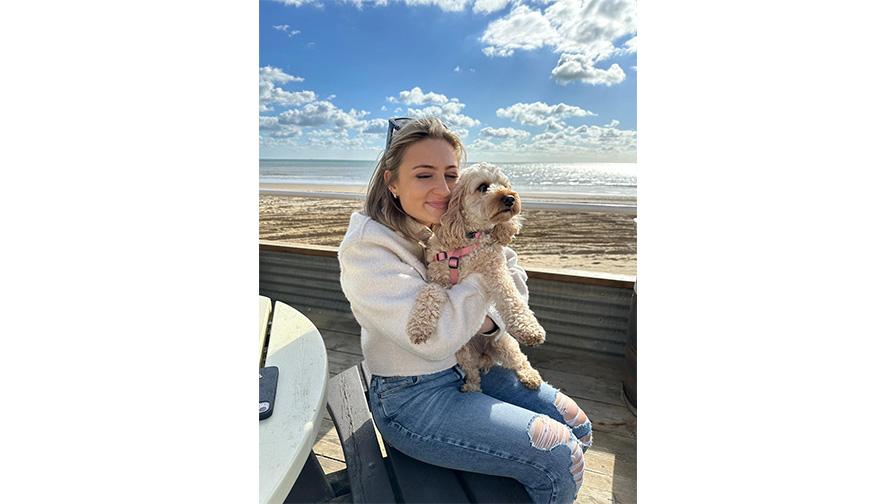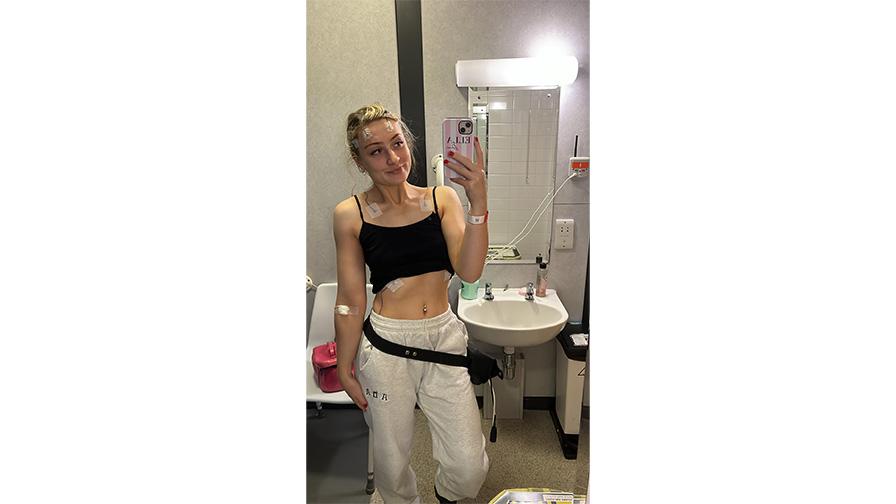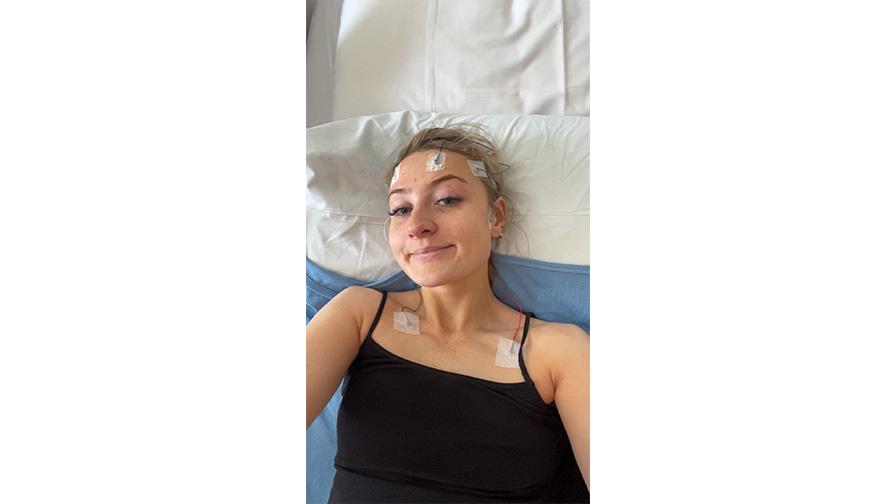Ella's story
Unlikely career inspiration: from retail to relationship therapist

Many of us were affected by Covid and lockdown but little did Ella know that she’d discover her dream career and start to train as a Psychosexual and Relationship Therapist (Sex and Relationship Therapist), thanks to developing her counselling skills speaking to customers at Ann Summers.
Despite having struggled at school due to the side effects of her anti-seizure medication, with support and additional tutors, Ella went on to graduate from university with a degree in Event Management. She was working in London in an events role when lockdown happened and she found herself without a job.
Ella moved back home with her parents. She looked for a job locally and spotted an advert for a managerial position at Ann Summers. She remembered her Mum was offered to host parties when she was younger but never took the opportunity, so Ella thought she’d take a chance as it could be an exciting and interesting role.
Ella began to find that customers were increasingly confiding in her about sex and relationships and she decided to explore whether she could turn this into a profession. She enrolled at the College of Sex and Relationship Therapists and will graduate this October after three years of studying.
Now aged 25, Ella is learning to drive and is currently seizure free thanks to being referred to the Gowers Centre here at Epilepsy Society.

Living with epilepsy
We asked Ella to share her story and what motivated her to do so. She said, “We need more awareness of epilepsy and for more people to understand what it’s like. Particularly for young teenagers experiencing puberty and change in hormones and young people who fear sharing that they have epilepsy. It seems that Epilepsy can be seen as a taboo, and it should be talked about, and people should not feel alone. “
Having been diagnosed with epilepsy when she was just seven years old, Ella struggled with the side effects of her different anti-seizure medications. It especially affected her at school, being unable to concentrate and falling asleep in lessons.
At the age of seven years old, Ella was diagnosed with epilepsy and prescribed Ethosuximide to treat absence seizures which controlled her seizures. At the age of 10, the medication Ella took to manage her tonic clonic seizures was then switched to Epilim. Her seizures were at their worst during secondary school; Ella was on a very high dose of a medication called Levetiracetam (Keppra).
She explained that the side effects were heavy doziness and tiredness, low moods which include anger, frustration or upset, and anxiety. Hormonal changes also affected her epilepsy. This Keppra ‘rage’ is a known side effect and Ella said this irritability affected relationships with her friends and teachers.
While Ella was given extra time and a separate room to complete her exams, she doesn’t feel her condition was properly understood or supported at school. Ella had always been fit and active and engaged in sports, but she couldn’t participate due to her excessive fatigue. While her parents did speak to the school about how her medication was affecting her, she feels that there was little understanding around how epilepsy affects your mood, memory and concentration. When Ella was studying for her GCSEs, she was on a very high dose of medication which made her extremely tired. She said, “The medication was there to help me stop having a seizure but ultimately made my life at times incredibly difficult to live 'normally'.”
Her memory was affected by the medication which made it harder for her to remember information. She had additional tutors outside of school and gained a place at university. While Ella really wanted to study further away from home, she chose to study at Hertfordshire University so that if her seizures got worse, her parents could easily come and pick her up and take her home.
Ella graduated with a degree and started working in London. However, with Covid and lockdown she ended up living back home.

Treatment at the Chalfont Centre
Having been seizure free for two years, Ella suddenly started to experience the signs and symptoms of having seizures again. She’d experienced a bad relationship breakup and was having absence and micro seizures.
Ella really wanted to learn to drive so her neurologist referred her to the Chalfont Centre at Epilepsy Society for tests to examine if she still had epilepsy and to review her medication.
She explained: “I had a 72-hour EEG scan at the Chalfont Centre in August 2023, with the aim of being able to identify if I still had epilepsy, induce a seizure to see what they look like and if we can find any triggers, and review medication based on the results.
My experience was very good as both an inpatient and outpatient. I remember visiting the Centre when I was 18 and receiving the best care. As an inpatient back in 2023, for three days, I was given the best care and everyone was just wonderful. I remember being treated kindly by the doctors and nurses; they even allowed me to use an exercise bike in my room!
I got quite upset at times as I felt lonely, and I couldn't leave the centre. My family and boyfriend were able to visit and stayed with me during the day. The outcome was positive; I was allowed to reduce my medication and look at learning to drive. “
If it had not been for the tests at the Chalfont Centre, I wouldn't be able to be in the position I am in now; at 25 years old, a nearly qualified Psychosexual and Relationship Therapist, the strongest both physically and mentally that I have ever been, happiest I’ve ever been, seizure free and feeling less tired and stressed.”

